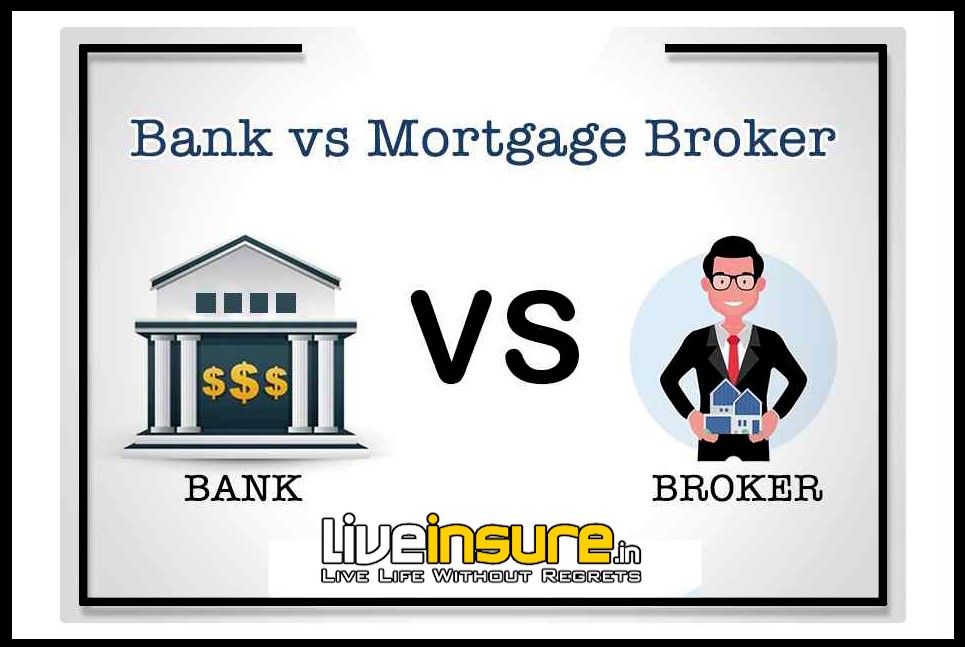What is a Mortgage?
A mortgage is a debt instrument specific to the real estate industry. It is secured by the collateral of a real estate property. The borrower is obligated to pay back the loan over time. Mortgages make it easier to purchase large real estate properties without having to pay a large purchase price upfront.
The borrower instead gets the opportunity to repay the loan over time – in periodic installments in addition to interest payments. After paying back the loan, the borrower becomes the owner of the property free and clear. Mortgages can also be referred to as liens against property or claims on property.
What is a mortgage broker?
A mortgage broker has indirect access to the money for your home loan based on approved relationships with a number of different banks. A mortgage broker matches your finances with a mortgage bank that can fund your loan but doesn’t lend you the money directly.
How mortgage brokers work
- The only paperwork in the broker’s name is your initial application.
- You don’t typically find out which mortgage bank will fund your loan until you get your initial loan disclosures.
- Processing may be done by an employee of the mortgage broker.
- The rest of the process — from underwriting to closing and funding — is completed by the mortgage bank.
- A separate company may prepare loan disclosures or closing documents.
Mortgage Brokers vs Banks: At a Glance
| Mortgage Broker | Bank | |
|---|---|---|
| Description | Mortgage specialist with access to offers from various lenders, earns a commission from the lender at no cost to you. | Banking service with multiple financial services, like credit cards, personal banking, mortgages, and loans. |
| Direct Lender | No | Yes |
| Examples | The Mortgage Centre, Breezeful, True North Mortgage, CanWise | BMO, RBC, TD, Scotiabank, CIBC, Tangerine |
| Home loan options | Many different options and interest rates from various lenders to choose from. | Can only offer their own mortgage products. |
| Interest rates | Will likely offer competitive rates by comparing offers from multiple lenders. | Won’t necessarily offer competitive rates or discounts. |
| How to apply | Apply entirely online with some online mortgage brokers in just a few minutes. | Fill out documents and apply in-person at the bank. |
| Pros | Save time by comparing lenders in one place, better discounts on interest rates, no added cost for the service. | Established banking relationship makes you feel more comfortable, consolidate banking services for a dicount. |
| Cons | Brokers might not work with all lenders, no established relationship. | Time consuming to research options, not as much choice in lenders, need to negotiate. |
Pros & Cons of Using a Mortgage Broker
Pros
- Save Time and Money: A good mortgage broker will ask you questions and recommend the best options. They’ll do all the hard work, so you don’t have to.
- Low Rates: Brokers have access to lenders offering low, and sometimes exclusive, rates.
- Unbiased Advice: Brokers receive roughly the same commission for connecting you with a lender, making them truly impartial.
- No Cost: If you have decent credit, you typically don’t pay anything for a broker’s services.
- More Choice: Brokers work with everyone from banks to monoline lenders with better rates, prepayment privileges and fairer mortgage penalties.
- Digital: Some brokers are entirely digital and you can securely upload documents and track your mortgage online.
- Customer Service: Brokers almost always offer better and faster customer service, including outside the usual “9 to 5” business hours and even 24/7.
Cons
- A New Experience: If you haven’t worked with a broker before, you might be hesitant to trust them to handle such a big financial decision.
- Broker Discrimination: Not all lenders work with brokers. If you want to borrow from that specific lender, you’ll have to reach out to the lender on your own.
- Limited Discounts: While this isn’t always the case, since brokers already offer preferred rates, you’re less likely to be able to haggle on the cost.
- Going Through the Middle-man: It isn’t necessarily a bad thing to have a middle-man between you and the lender, but if you prefer to interact directly with the company responsible for providing you a mortgage, then a broker might not be for you.
Pros & Cons of Using a Bank
Pros
- Brand Recognition: We’re already familiar with banks and we know what to expect when dealing with them.
- Perks: Banks have deep pockets and can offer extra perks like covering your appraisal fee or waiving your banking fees.
- Existing relationship: If you have an existing relationship with your bank and you’ve been relying on them for years, chances are you already have a friendly rapport with one or more of the bankers. This can help you feel more at ease, trusting, and might come in handy when trying to secure a lower rate.
- Stability: Canadian banks are among the safest and most stable in the world, so you won’t have to worry about anything.
Cons
- Less Choice: Banks will only offer their own mortgage products, they won’t encourage you to shop around for something better.
- Time-consuming: Not only do you need to conduct your own research, but when you’re ready to apply, you’ll likely need to go in person during limited business hours.
- Damage Your Credit: Credit bureaus sometimes lump multiple mortgage-related credit checks in together as one inquiry, but other times they won’t. If it’s the latter, shopping around for a mortgage at the banks could hurt your credit score.
- Haggling: The bank won’t offer you its best rate right away, so you’ll have to shop around, compare rates, and be ready to negotiate.
- Generalists: Your bank’s financial advisor isn’t a specialized mortgage consultant. Mortgages are only one of the several products (think mutual funds, RRSP, TFSA) that they need to sell.
- Mortgage Penalties: Banks are notorious for their mortgage penalties. Covered often in the press, the latest poor soul was charged a $30,000 penalty for selling due to the pandemic.
Which is better?
Applying for a home loan with advice from a mortgage broker or applying directly with a bank is a decision that depends on your personal circumstances, such as your financial stability, level of savings, and employment situation.
Whether you need someone to hold your hand through the process or you are a seasoned borrower, the best choice can be determined by weighing up the pros and cons of each lending experience.
Conclusion
Whether you refinance or purchase your mortgage from a bank or a mortgage broker, it is always suggested you compare it with at least three institutions before you finalize your mortgage and the financial institution.
It would give you a fair chance to save as much money as you could.




